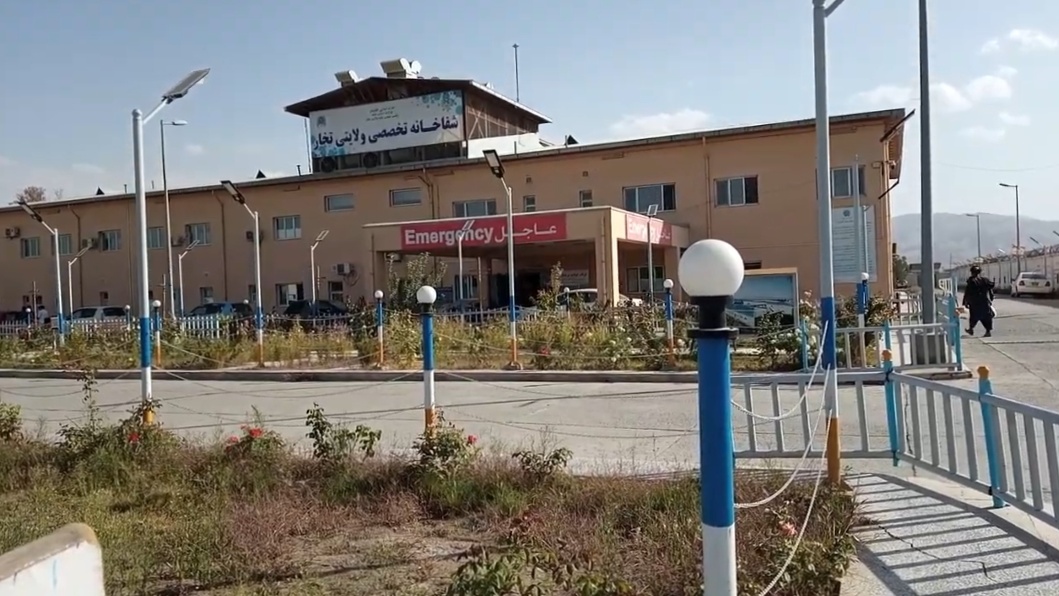Residents of northern Takhar have raised concerns over the shortage of healthcare facilities in the province, saying that the only medical facilities available to them are in Taleqan, the provincial capital.
According to them, districts have no clinics and even in Taleqan, the provincial hospital has only limited facilities and supplies to treat patients. Residents also said they are specifically concerned about the sharp increase in the maternal mortality rate.
Habibullah, a resident of Khwaja Ghar district, who is also struggling financially, said he had to rush his 10-month-old child to the provincial hospital in Taleqan on Friday night as his home district has no medical facilities.
“I brought my ill child at 01:00 am last night from Khwaja Ghar district to the provincial hospital of Takhar. But the doctors neglected his health issues,” he said. “As we are poor, we have to go to the government hospital, but we were still ordered to pay money in many sections even though they didn’t provide proper treatment.”
Residents of other districts in Takhar echoed Habibullah’s concerns, saying that their areas all lack medical facilities.
“There is no medical service in our district, and therefore, we are bringing our patients to the capital. We are facing a shortage of medicines and doctors as well,” said Hamidullah, another resident of Takhar.
Amanullah, a resident of Kalafgan district, said his child has been in the hospital, bed-ridden, for more than 10 days.
“It has been 11 days since I brought my child from Kalafgan district to the provincial hospital but my child’s health has not yet improved and I am very worried,” he said.
Some Takhar residents have called on the Taliban’s provincial health sector to resolve the problems – including that around the shortage of medicines.
Sediqullah, another resident of Takhar, said there is no medicine in the provincial hospital.
“I brought my mother from Khwaja Ghar district to Takhar’s capital but there is no medicine in the hospital. We had to purchase medicine from the market,” he said. “We request that the medical supplies be provided to the hospital.”
The World Health Organization (WHO) warned earlier this year that around 17 million people in Afghanistan will be in need of health assistance in 2023 amid the country’s health sector crisis.
The United Nations International Children’s Emergency Fund (UNICEF) has in turn said at least 75,000 children under the age of five are expected to need treatment for severe acute malnutrition in the coming months.





